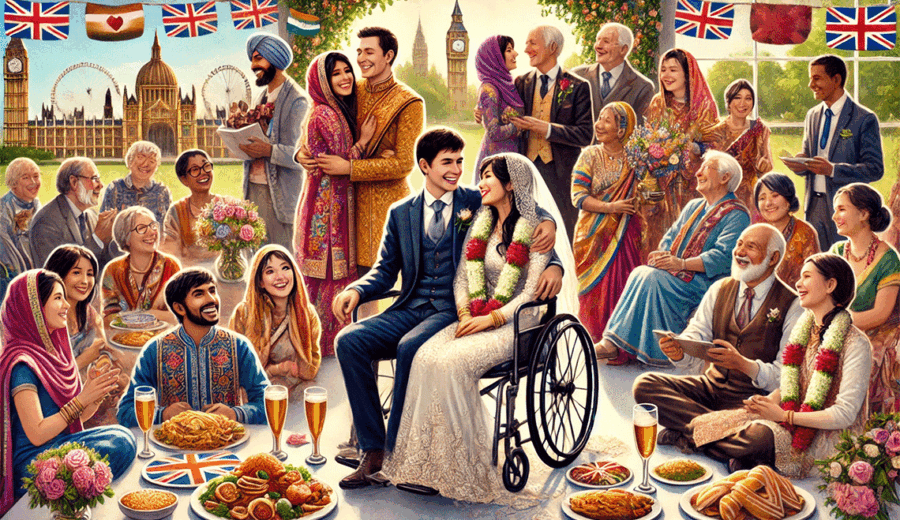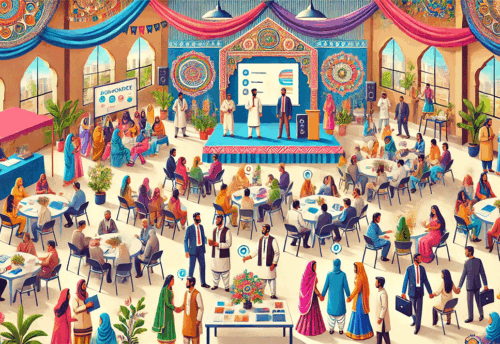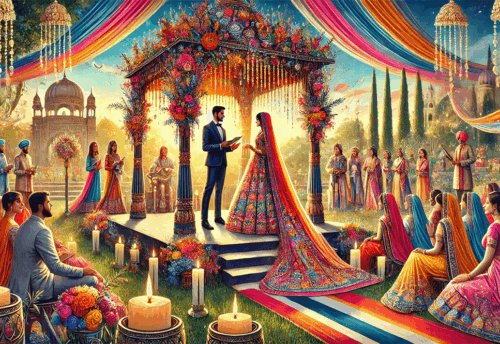
Love Marriages and Family Dynamics in South Asian Families
Love Marriages and Family Dynamics in South Asian Families
Love marriages in South Asian families, particularly in the UK, represent a shift from traditional practices towards greater acceptance of individual choice. These unions, often a blend of cultural backgrounds, bring joy but also challenges, especially when navigating family dynamics and societal expectations.
Acceptance of Love Marriages in South Asian Families
Historically, arranged marriages were the norm in South Asian culture, with families playing a central role in match-making. However, the growing influence of education, urbanization, and exposure to Western ideals has gradually increased the acceptance of love marriages.
- Changing Mindsets:
- Younger generations are more vocal about prioritizing love and compatibility over traditional criteria like caste or family reputation.
- Families are increasingly open to understanding the importance of personal connection in a successful marriage.
- Factors Contributing to Acceptance:
- Higher levels of education and career independence.
- Social media and greater exposure to multicultural environments.
- Real-life examples of successful love marriages within the community.
- Remaining Challenges:
- Resistance persists among more traditional families who value arranged setups as a means to preserve cultural identity and familial ties.
- Love marriages may be scrutinized more heavily, with couples needing to prove their compatibility to skeptical relatives.
Challenges Faced by Couples Marrying Outside Their Culture, Religion, or Caste
Love marriages often transcend traditional boundaries, such as caste, religion, or nationality, but they come with unique hurdles.
- Cultural Differences:
- Couples may face misunderstandings due to differing traditions, languages, or cuisines.
- Families may struggle to find common ground on wedding rituals, festivals, or child-rearing practices.
- Social Stigma:
- Fear of societal judgment or gossip within close-knit South Asian communities.
- Pressure on couples to conform to expectations to avoid dishonoring their families.
- Family Reactions:
- Resistance from parents who fear losing cultural heritage or reputation.
- Strained relationships between family members when one side disapproves of the marriage.
- Navigating Emotional Strain:
- Couples often experience stress balancing their love with the need to gain familial acceptance.
- Intercultural couples may feel isolated if neither side fully supports them.
Bridging Cultural Gaps Between Families in Interfaith or Intercultural Marriages
Interfaith and intercultural marriages are becoming more common, fostering unique opportunities to unite diverse traditions. However, bridging these gaps requires sensitivity and effort.
- Fostering Understanding:
- Open dialogue between families to share and respect each other’s values and traditions.
- Celebrating cultural similarities while appreciating differences.
- Blending Traditions:
- Incorporating elements from both cultures in wedding ceremonies and daily life, such as combining traditional South Asian attire with Western customs or celebrating multiple festivals.
- Raising children with an understanding of both cultures, fostering inclusivity and a sense of identity.
- Seeking Support:
- Joining multicultural community groups or seeking professional counseling to navigate conflicts and foster acceptance.
- Sharing positive stories of other intercultural couples to inspire families and alleviate fears.
- Building Bridges Through Time:
- Patience is key, as families often need time to adjust and embrace the union.
- Acts of kindness and shared celebrations can help integrate both families into the couple’s new life.





Leave a Reply